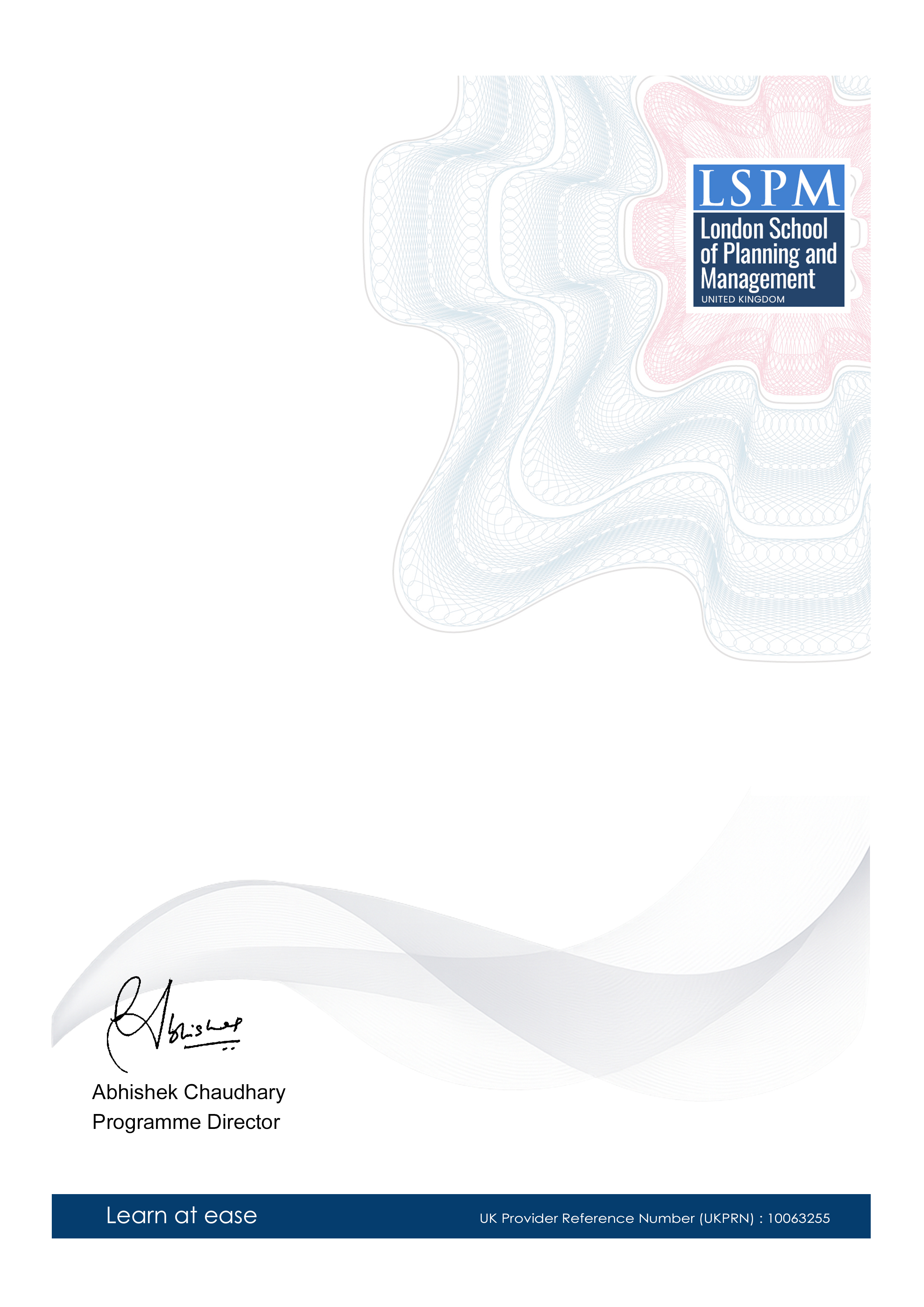Executive Certificate in Fisheries Planning and Management
-- viewing nowThe Executive Certificate in Fisheries Planning and Management is a comprehensive course designed to provide learners with critical skills in fisheries conservation, management, and planning. This certificate program emphasizes the importance of sustainable fishing practices, stock assessment, and policy development, making it highly relevant in today's environmentally-conscious world.
5,888+
Students enrolled
GBP £ 149
GBP £ 215
Save 44% with our special offer
About this course
100% online
Learn from anywhere
Shareable certificate
Add to your LinkedIn profile
2 months to complete
at 2-3 hours a week
Start anytime
No waiting period
Course details
Here are the essential units for an Executive Certificate in Fisheries Planning and Management:
• Fisheries Science and Biology: An introduction to the fundamental concepts of fisheries science, including the biology, ecology, and behavior of aquatic organisms.
• Fisheries Management Techniques: An exploration of the various methods and techniques used to manage fisheries, including stock assessment, habitat restoration, and harvest control.
• Fisheries Planning and Policy: An examination of the role of planning and policy in fisheries management, including the development of management plans, policy analysis, and stakeholder engagement.
• Fisheries Economics and Marketing: An overview of the economic principles that underpin fisheries management, including the economics of fisheries, resource pricing, and market analysis.
• Fisheries Law and Compliance: A study of the legal frameworks that govern fisheries management, including domestic and international law, compliance and enforcement.
• Fisheries Technology and Innovation: An investigation of the latest technologies and innovations in fisheries management, including data management, monitoring and surveillance, and gear design.
• Fisheries Sustainability and Environmental Impact: An analysis of the environmental and sustainability challenges facing fisheries management, including climate change, habitat degradation, and biodiversity loss.
• Fisheries Case Studies and Best Practices: An examination of real-world case studies and best practices in fisheries management, including successful management strategies and lessons learned from failures.
Career path
Entry requirements
- Basic understanding of the subject matter
- Proficiency in English language
- Computer and internet access
- Basic computer skills
- Dedication to complete the course
No prior formal qualifications required. Course designed for accessibility.
Course status
This course provides practical knowledge and skills for professional development. It is:
- Not accredited by a recognized body
- Not regulated by an authorized institution
- Complementary to formal qualifications
You'll receive a certificate of completion upon successfully finishing the course.
Why people choose us for their career
Loading reviews...
Frequently Asked Questions
Skills you'll gain
Course fee
- 3-4 hours per week
- Early certificate delivery
- Open enrollment - start anytime
- 2-3 hours per week
- Regular certificate delivery
- Open enrollment - start anytime
- Full course access
- Digital certificate
- Course materials
Get course information
Earn a career certificate

